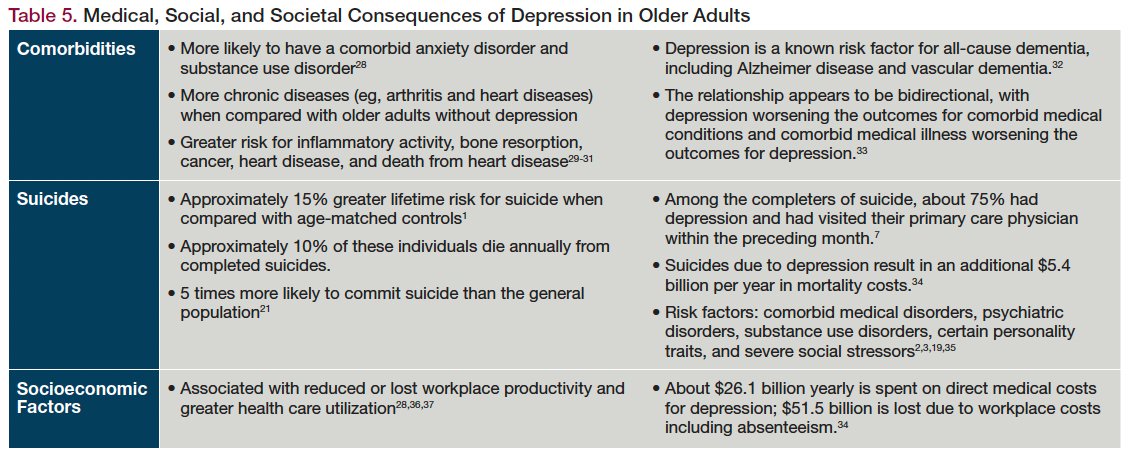Which Situation Describes a Risk Factor for Depression
And those without these known risk factors for depression. Whats more about 5 percent of all Americans will be diagnosed with depression in their lifetime and.

Depression Types Symptoms Treatments
Alcoholics cannot usually fulfill their work and family obligations which contributes to the negative effects.

. Major depression is most likely to affect people between the ages of. Alcohol and drugs including prescription medications affect the brain in ways that influence depression. Abuse of alcoholic beverages can cause alterations in brain activity causing or worsening episodes of depression.
First responders and recovery workers most at risk for emotional distress include those who have experienced. Have you been in a depressed mood most of the day nearly every day for at. Becoming irritable or hostile in social situations resorting to blaming and failing to support teammates.
To find out which actions might be most helpful for people at high risk of depression researchers divided the participants into three groups. Those with genetic risk factors for depression. Prolonged separation from loved ones.
Being a woman increases the risk for. People who were neglected or abused as children have a high risk for major depression. All people face uncertainty adversity loss and other obstacles to well-being.
Previous deployments that caused disruptions in home or work life. Those who experienced early life trauma. After a difficult life event whether it is a change in a relationship the loss of your job or the death of a loved one the stress of the situation can cause you to feel sad helpless apathetic lost irritable or even hopeless.
And in the most global sense life itself is a risk factor for depression. Lack of social support. For people with genetic risk factors for depression frequency of confiding in others and sleep.
Some medications and street drugs can also trigger depression. You are at a higher risk of depression if. It can also be an effect of depression.
In addition several psychological and psychosocial variables have been proposed as risk factors for recurrent depression including negative cognitions high neuroticism poor social support and stressful life events. Nervous system conditions such as epilepsy and multiple sclerosis. Frequent use of alcohol or recreational or illegal drugs is a risk factor for the development of depression and other problems such as anxiety.
Many people who develop depression previously experienced traumatic situations during their childhood years. Depression can be treated. Here are more facts on risk factors for this mood disorder.
Many chronic mood and anxiety disorders in adults begin as high levels of anxiety in children. Dont hesitate to ask for help. You have a chronic medical conditions such as.
You have another psychiatric condition. But because all people face life. In a follow-up study in the ECA catchment area poverty was shown to have a profound impact on onset of new cases and thus to be a significant risk factor for.
This may have been sexual emotional andor physical abuse or separation from a parent through death or divorce. 1 High on neuroticism have highest risk for depression neuroticism is one of the best predictors of depression. You have previously had depression.
Women are twice as likely to have depression as men but this may be due to the fact that more women seek. This quiz may help you tell if youre at risk. Examples include rape murder torture abuse accidents terrorism and combat experience.
Depression especially in midlife or older adults can co-occur with other serious medical illnesses such as diabetes cancer heart disease and Parkinsons disease. Sometimes other diseases such as Parkinsons and stroke may cause chemical or structural changes in the brain that might have a direct role in depression. Depression can strike anyone at any age regardless of race gender or practically any other demographic marker you can name.
Gender is also a biological risk factor. Major depression is one of the most common mental disorders in the US according to the National Institute of Mental Health or NIMH. Social risk factors for depression Abuse.
Drinking too much alcohol can cause depression. Substance use or abuse is a risk factor for depression. Others in your family have had depression.
Substance use or abuse also often negatively affects relationships in ways that might lead to depression. Loneliness or social isolation. Physical illness poses another biologic risk.
2 Having a life stressor when youre neurotic even more increases your risk for depression vulnerability model iii. Which situation describes a risk factor for depression-feeling isolated from people at school-being optimistic about how life is going-knowing a classmate who has depression-adjusting to a variety of simple changes.

The Assessment Of Depression Among Older Adults

Diagnosis And Treatment Of Late Life Depression

No comments for "Which Situation Describes a Risk Factor for Depression"
Post a Comment